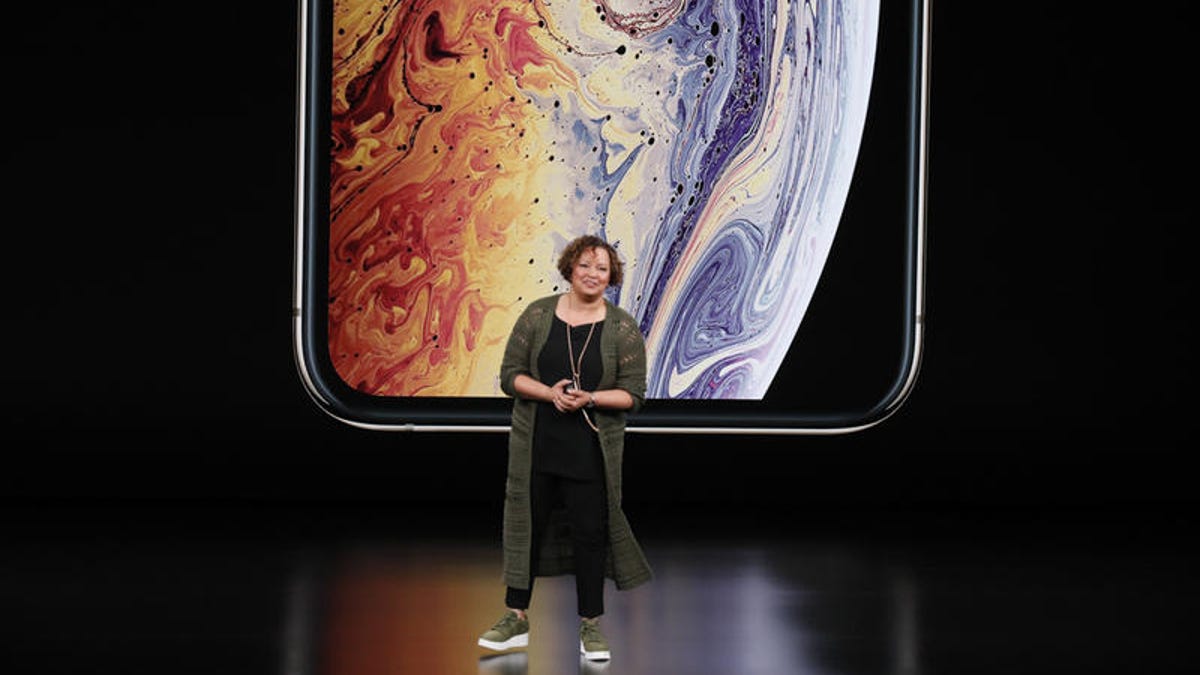Apple ups the recycled materials in its new iPhones
The company is putting recycled tin in its phones' logic boards.

At Apple's iPhone event on Wednesday, executive Lisa Jackson touted the company's environmental record.
Apple's newest iPhones are using recycled tin in their logic boards, and cover glass that's 32 percent bio-based plastic, the company said Wednesday during an unveiling event for the smartphones. The news marks the company's latest attempts to mitigate the effect its products have on the environment.
Lisa Jackson, Apple's executive who oversees environmental issues, made the announcements as she restated some of Apple's environmental bona fides, like moving all its facilities to using only renewable energy.
See also
Apple is trying to avoid mining new materials from the earth, but that's hard to do. It requires the company to find ways to use recycled or responsibly sourced materials, according to Jackson, and Apple needs to make devices last as long as possible and make sure they're recycled properly.
"All of these devices, including the iPhone XS, run iOS 12," Jackson said. "Because they last longer, you can keep using them."
Apple, which in August became the US' first trillion-dollar company, has been soaring during the past few years, largely thanks to the success of the iPhone. Apple makes about two-thirds of its revenue from the device, and the gadget also has helped the company's services businesses -- which includes the App Store and Apple Music -- grow quickly.
Last year's iPhone X proved to be popular, despite its higher price tag. Apple sold 41.3 million iPhones in its most recent quarter, nearly flat compared with the previous year's 41.03 million but better than some analysts expected. The company said the device has been its best-selling iPhone since it hit the market in early November, and it's helped the average selling price of Apple's devices jump above $700. In the fiscal third quarter that ended in June, the average selling price of its iPhones climbed to $724 from $606 a year ago.
Still, the popularity of the iPhone X wasn't enough for Apple to hold onto its position as the world's second-biggest smartphone vendor. Instead, China-based Huawei leapfrogged Apple by shipping 54 million handsets in the quarter, up 41 percent from the previous year. Huawei's gain came despite the fact it's been all but shut out of the US market. It's the first time in seven years that Apple and Samsung -- still No. 1 -- haven't controlled the top two spots.
See everything that Apple has announced at its Sept. 12 event so far
Taking It to Extremes: Mix insane situations -- erupting volcanoes, nuclear meltdowns, 30-foot waves -- with everyday tech. Here's what happens.



